Usually, the introductory comments of a book like this let you know what the subject matter inside is going to be like. I think its only fair, however, to let you know also what these pages do not contain. If you are looking for a historical biography of Anthony de Mello you wont find it here. Similarly, if you seek an extensive overview of his philosophy of life, you are likely to be disappointed.
So what does the book hope to do? It starts by trying to respond to the questions that I most often find myself answering about the type of prayer Anthony de Mello fostered and encouraged. It attempts to highlight the kinds of problems a person might encounter when they engage in the praying process. It also gives a taste of the sort of benefits you might reap if you devote time and energy to the type of prayer Anthony de Mello promulgated. I hope also that it may revitalise you in your exploration of different prayer styles and help you in your own individual journey towards God.
At the end of each chapter I present a number of prayer exercises and meditations that you may find helpful. If you attempt one each day, you will not only get into the habit of meditation fairly quickly but you will also see whether you find the practice profitable or not for you.
Finally, very many thanks to Eddie ODonnell, SJ, and to Colm Wynne for checking the manuscript and to my brother, Bill, for his illustrations.
Introduction
Since my first book on Anthony de Mello was published, much has happened in the Roman Catholic Church. Not all of it has been good. Many of those who are active in Church affairs and supportive to religious life in general have felt mortified by recent events that have taken place in ecclesiastical circles. I believe that at least in Ireland these feelings of shame may have occurred because of the constant stream of bad publicity, scandals and abuses that have been highlighted in the media on a regular basis. While this goes on, the gift that Anthony de Mello was and is to the Church has gone through interesting developments. On the one hand, those who valued what he had to say continue to use his insights. In fact, they have almost sanctified his memory. At much the same time, some elements within the ecclesiastical hierarchy have moved in the opposite direction. It seems they have become more and more worried by the sense of inner freedom that the thinking and teaching of de Mello appear to inspire among his followers. They hint that it may be injurious to your spiritual health if you read his material or follow his prayer style.
So first we have to ask and answer some questions about the man and his work. Who was Anthony de Mello? Where did he come from? How did he develop a prayer style that has helped so many? Is he safe? Why did some in the Vatican choose to speak out against him? Finally, are we likely to find what he teaches helpful?
Anthony de Mello was born on 4 September 1931, in Bombay, India. I think it would not be overstating the case if I said that he had a profound influence on all those who came into contact with him. Early biographical details are scarce and difficult enough to come by, but he himself has said that some of his initial faith enthusiasm was most probably given to him during his earliest childhood Indian experiences.
A friend who knew him in his youth tells me that he was always sharp and bright. To illustrate this, that same friend speaks about an incident from de Mellos youth that had far-reaching consequences for all concerned. One day, Anthony came home from school and announced that he wanted to become a Catholic priest. This went very much against Indian tradition for the eldest son in a family was usually expected to carry on the family name. His father spoke with him explaining that, as he was the only son at home, certain expectations rested on his shoulders. In essence, his presence was required to carry on the family traditions and name. This meant that Anthonys fondest wishes and dreams would have to be put on hold. It was at this point that fate stepped in to give him a helping hand.
The story goes that Anthonys mother remained childless for some years after Anthonys father made this pronouncement. Eventually, word seeped out that Anthonys mother was expecting again. As she was rushed to hospital so that her newborn child might be delivered, Anthony is reported to have run the four miles or so to the hospital to find out whether the baby was a boy or a girl. On hearing the news that he had a new brother, he is reported to have said to his father, Great, now I can become a priest.
Whatever about the truth of this story, its safe to say that during his early years de Mello though a Christian was exposed to both Hindu and Buddhist traditions. He joined the Society of Jesus straight after school and began his basic formation as a Jesuit in Bombay. After an initial two years in the Jesuit noviceship, he was sent abroad for a variety of studies. He took on the study of philosophy in Barcelona, psychology at Loyola University in Chicago, and theology at the Gregorian University in Rome. While in Europe, he was profoundly influenced by the works of a number of Spanish saints and Christian mystical writers most notably Teresa of Avila and John of the Cross. Some observers have noted that the fusion of those three elements the study of psychology in the United States, his own Indian background, and the reflections upon the theories of good and evil contained in both eastern and western spirituality provided de Mello with insights which produced a heady cocktail.
His impact upon western spirituality happened slowly. In 1974, he was elected as a delegate from the Jesuit Province of Bombay to the General Congregation of the Society of Jesus in Rome. Each day, before the proceedings of the congregation began, many of the delegates prayed together and Anthony de Mello was asked to conduct these prayer sessions. For half an hour each day, in English and Spanish, he led the proceedings.
These conferences obviously left a deep impression on those who attended. We are told that his prayer groups began each day with a period of silence. This was followed by a short chant. De Mello suggested that the use of chants, the repetition of certain words (such as the name of Jesus), allied with measured breathing, self-awareness and a relaxed body position, would assist the participants to find their way to God. He stressed that God is already present in our lives. The participants principle task was to become fully aware of that fact.



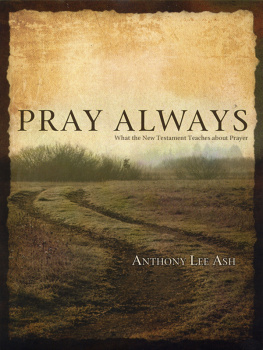
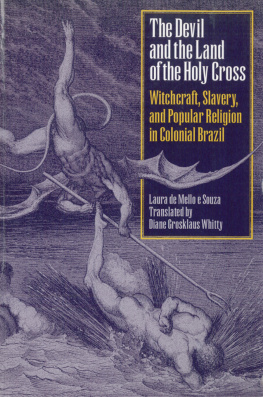
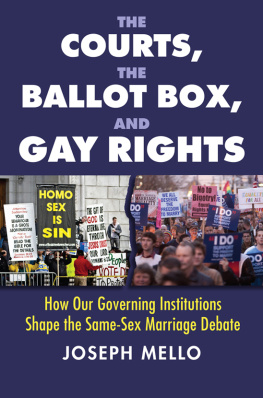
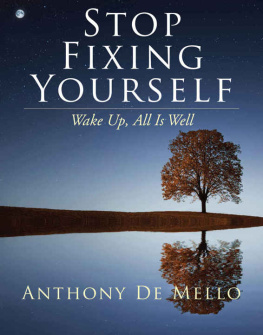
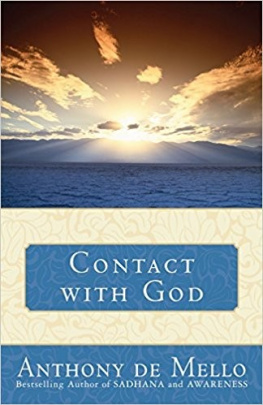
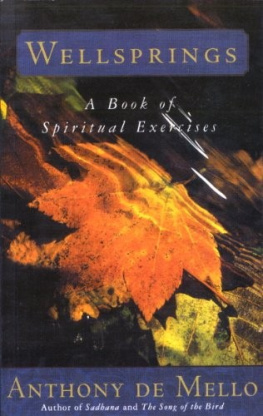
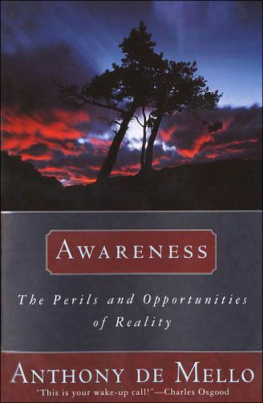
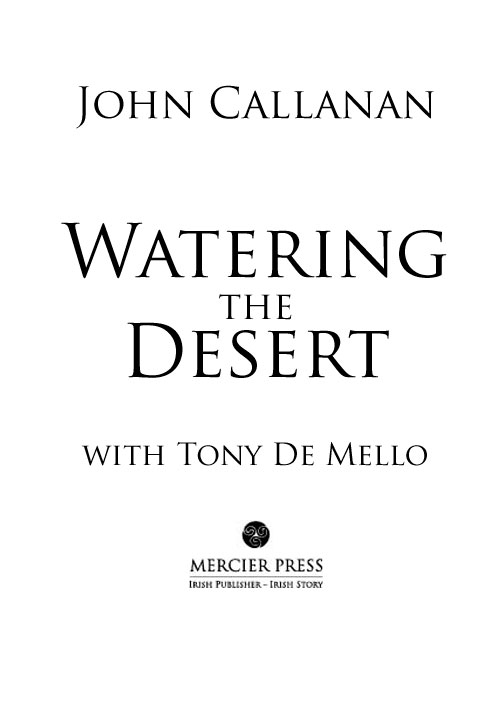
 www.mercierpress.ie
www.mercierpress.ie http://twitter.com/IrishPublisher
http://twitter.com/IrishPublisher http://www.facebook.com/mercier.press
http://www.facebook.com/mercier.press